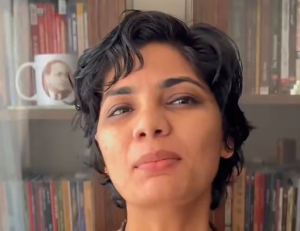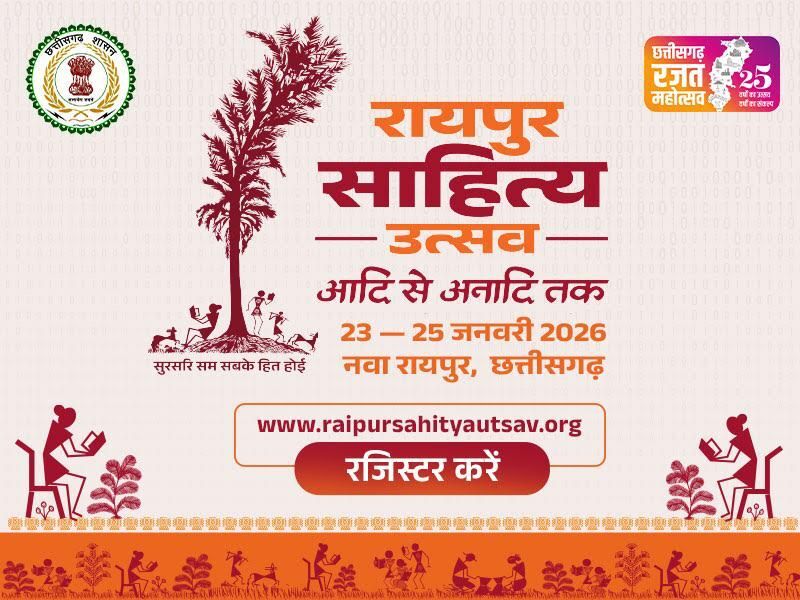A comparison so audacious it could make a Bollywood plot blush: Bhojpuri folk singer and social media firebrand Neha Singh Rathore was likened to none other than Mia Khalifa, the former adult film star turned cultural lightning rod. Buckle up, dear reader, as we dive into this spicy saga with a generous dollop of satire, a pinch of wit, and a whole lot of “Ka Ba?”—Neha’s signature catchphrase.
Who Is Mia Khalifa, Anyway?
For those who’ve been living under a rock or in a Wi-Fi dead zone, Mia Khalifa is a Lebanese-American media personality who skyrocketed to infamy in the mid-2010s as an adult film actress, albeit briefly. Her stint in the industry—shorter than a TikTok video—catapulted her into a global phenomenon, not for her acting chops but for the cultural and political firestorms her work ignited. Since leaving the adult industry, Khalifa has reinvented herself as a sports commentator, social media influencer, and occasional provocateur, with an Instagram feed hotter than a Delhi summer and a knack for staying relevant. She’s the kind of figure who can trend for anything from a tweet about football to a throwback photo that sends the internet into a frenzy. In short, she’s a one-woman meme factory, loved, loathed, and always trending.

The Neha Singh Rathore Conundrum
Neha Singh Rathore, the Bhojpuri folk singer known for her sharp political satire, has stirred controversy with songs like “Bihar Mein Ka Ba?” and “UP Mein Ka Ba?”, which critics claim echo the Congress party’s narrative, leading to accusations of her being a paid propagandist. Some draw parallels to the historical Bhat community in Bihar—wandering bards who sang praises or critiques for money—implying Neha’s work is similarly transactional.
The Comparison That Lit the Internet on Fire
So, how did these two wildly different women end up in the same viral tweet? In March 2024, amid a political brouhaha involving Bollywood actress and BJP candidate Kangana Ranaut, Neha found herself targeted by what she alleged was the BJP’s IT cell. Social media posts surfaced, juxtaposing Neha’s photos with Mia Khalifa’s, with captions snarkily suggesting a resemblance. The implication? A crude attempt to smear Neha by associating her with Khalifa’s controversial past. Neha, never one to mince words, fired back on X, tagging Prime Minister Narendra Modi himself: “Your family members are calling me a porn star… Am I not a daughter of this country?”

Neha should also tell whether the women in the Red light Area who are forced to live there and have sex for money, are they not the daughters of India? Shouldn’t they be given Indian citizenship and the facilities they get as a citizen?
It is not at all right to compare Neha with Mia Khalifa but it is not logical to link the comparison with Mia Khalifa to being the daughter of the country. If Neha has to go and sing and dance on the Congress stages, then she must have had some compulsion. For this, it is not right to compare her with Mia Khalifa.
The Satirical Spin
Imagine the absurdity: a BJP IT cell meeting where someone pitches, “Let’s take down Neha by comparing her to Mia Khalifa!” The room nods, thinking it’s genius, oblivious to the fact that they’ve just handed Neha a megaphone. Neha, ever the maestro, turned the trollfest into a rallying cry, accusing the BJP of double standards. While the media fawned over Kangana Ranaut’s honor after a Congress leader’s sexist remark, Neha’s humiliation was met with silence. “Is only Kangana the daughter of the nation?” she quipped, exposing the selective outrage with the precision of a satirical sniper.
The internet, predictably, had a field day. Memes proliferated, with Neha’s “Ka Ba?” morphing into “Mia Ka Ba?” Some users hailed her as a feminist icon; others doubled down on the trolling. Meanwhile, Mia Khalifa, blissfully unaware in her Los Angeles penthouse, probably sipped her coffee, wondering why her name was trending in Uttar Pradesh. The whole episode was a masterclass in how not to run a smear campaign—less a political takedown, more a comedic own goal.

The Bigger Picture
Neha Singh Rathore, a folk singer known for her politically charged Bhojpuri songs, has stirred controversy with her social media posts following the Pahalgam terror attack, leading to an FIR for sedition and inciting communal tensions. Her rapid rise, fueled by songs like UP Mein Ka Ba and Bihar Mein Ka Ba, resonates with audiences for addressing social issues, but her alleged alignment with the Congress ecosystem raises questions about impartiality. Critics argue her posts, which reportedly targeted a specific faith community, exploit sensitive issues for political gain, especially given their viral spread in Pakistan. Her defiance, seen in her video challenging the government’s response to the attack, underscores her role as a provocateur. Support from figures like Kapil Sibal and alleged ties to Congress events suggest a strategic backing that amplifies her influence. While her music critiques governance, her selective targeting and political affiliations blur the line between activism and partisanship. This dynamic highlights a broader issue: can artists remain impartial when embedded in political ecosystems? Neha’s case reflects the tension between free expression and responsible commentary in a polarized climate.





